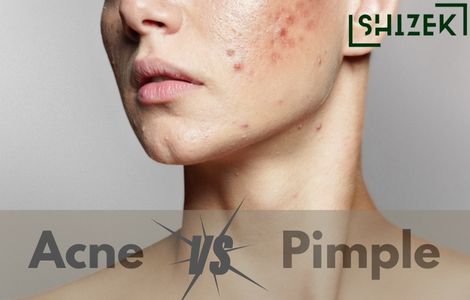Why Experts Say Not to Remove Wisdom Teeth?

Wisdom teeth, also known as third molars, usually appear between the ages of 17 and 25. Many people experience discomfort and consider removal. However, dental experts now advise against removing wisdom teeth unless absolutely necessary.
Understanding the reasons behind this recommendation can help you make informed decisions about your dental health.
Why Experts Say Not to Remove Wisdom Teeth?
Natural Part of the Mouth
- Wisdom teeth are a natural part of your dental structure.
- They evolved to help our ancestors chew hard, tough food.
- Removing them can disrupt the balance of your mouth.
Unnecessary Surgery Risks
- Wisdom teeth removal involves surgery, which carries risks.
- Possible complications include infections, nerve damage, and prolonged pain.
- Avoiding unnecessary surgery minimizes these risks.
Impact on Jaw and Teeth Alignment
- Removing wisdom teeth can affect the alignment of your jaw and remaining teeth.
- This can lead to further dental issues, requiring more treatments.
Financial and Recovery Considerations
- Surgery can be costly and may not be covered by insurance.
- The recovery period can involve pain, swelling, and time off from work or school.
Low Incidence of Problems
- Studies show that many wisdom teeth removals are unnecessary.
- According to research, only 12% of wisdom teeth removals prevent future dental issues.
Advancements in Dental Care
- Improved dental care and monitoring can help manage wisdom teeth without removal.
- Regular check-ups can detect and address issues early, reducing the need for surgery.
Preservation of Natural Teeth
- Keeping wisdom teeth helps preserve the natural dental structure.
- It maintains the integrity of the mouth, which can be beneficial in the long term.
Better Alternative Treatments
- Alternatives like regular monitoring, good oral hygiene, and professional cleanings can manage wisdom teeth effectively.
- These methods reduce the need for surgical intervention.
Must Check
- Difference Between Permanent Teeth and Temporary Teeth
- How to Remove Black Stains from Teeth Naturally?
What are the Alternatives to Wisdom Teeth Removal?
Regular Monitoring
- Routine Dental Check-ups: Schedule regular visits to your dentist to monitor the growth and alignment of your wisdom teeth.
- X-rays: Dentists can take periodic X-rays to track the position and development of your wisdom teeth.
Good Oral Hygiene
- Brushing and Flossing: Maintain excellent oral hygiene by brushing twice a day and flossing daily to prevent infections and gum disease.
- Mouthwash: Use an antibacterial mouthwash to reduce bacteria and plaque build-up around the wisdom teeth.
Pain Management
- Over-the-Counter Pain Relievers: Use pain relievers like ibuprofen or acetaminophen to manage occasional discomfort and inflammation.
- Topical Gels: Apply topical gels or rinses to provide temporary relief from pain.
Professional Dental Cleanings
- Regular Cleanings: Schedule regular professional cleanings to manage plaque and tartar build-up around the wisdom teeth.
- Deep Cleaning: In some cases, a deep cleaning may be necessary to address gum issues related to wisdom teeth.
Orthodontic Evaluation
- Consult an Orthodontist: If your wisdom teeth cause minor misalignment, an orthodontic evaluation can help determine if braces or other treatments are needed.
- Preventive Measures: Orthodontic treatments can help manage the impact of wisdom teeth without removal.
Dietary Adjustments
- Soft Foods: Eat softer foods to avoid irritating your wisdom teeth and gums.
- Avoid Hard Foods: Steer clear of hard, crunchy foods that can cause pain or get stuck in the teeth.
Using Antibacterial Mouthwash
- Daily Rinsing: Use an antibacterial mouthwash daily to reduce bacteria and prevent infections around the wisdom teeth.
- Targeted Cleaning: Focus on rinsing the back of the mouth where wisdom teeth are located.
Irrigation Syringe
- Post-Meal Cleaning: Use an irrigation syringe to flush out food particles and debris from around the wisdom teeth after meals.
- Preventing Infections: This method helps prevent infections and keeps the area clean.
Warm Salt Water Rinses
- Soothing Pain: Rinse your mouth with warm salt water to soothe pain and reduce inflammation.
- Healing Properties: Salt water can help promote healing of any minor gum irritations.
Explore Our Other Health Blogs
- Difference Between Active and Passive Listening
- Difference Between Angiography and Angioplasty
- Difference Between Love and Like
- Difference Between Love and Attraction
- Difference Between Smooch and Kiss
- Difference Between Aerobic and Anaerobic Respiration
- Difference Between Sperm and Semen
- Difference Between Zygote and Foetus
- Difference Between Drying and Dehydration
- Difference Between Shower Gel and Body Wash
- Difference Between Open-Angle and Close-Angle Glaucoma
- Difference Between Permanent and Temporary Teeth
- Difference Between Moisturizer and Lotion
























































































































